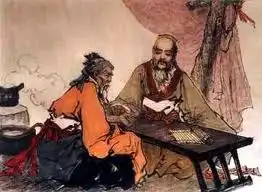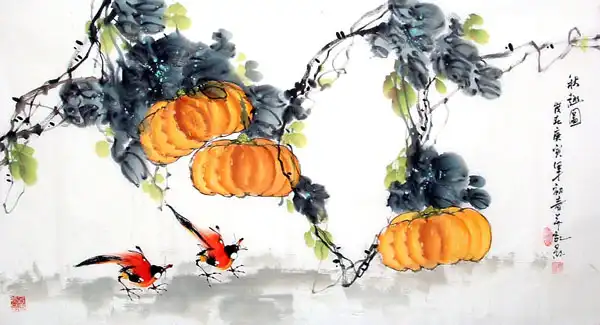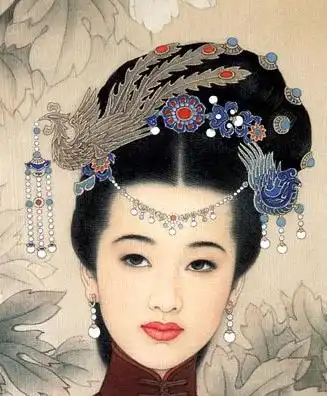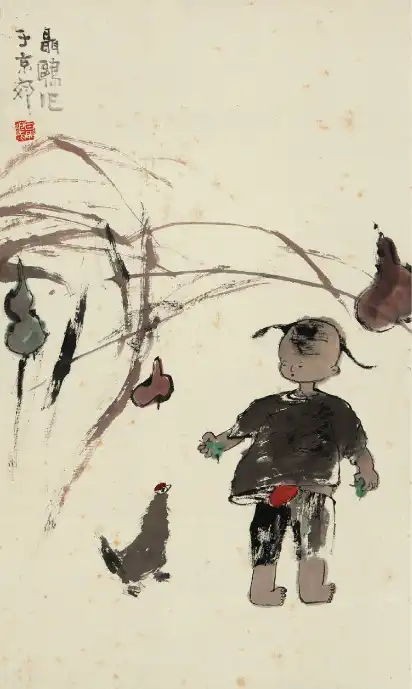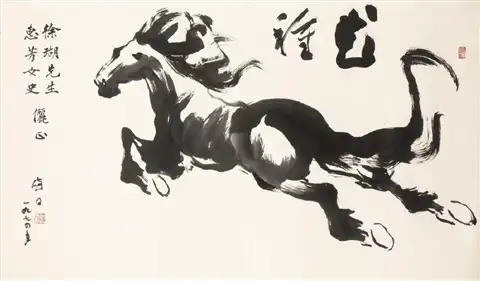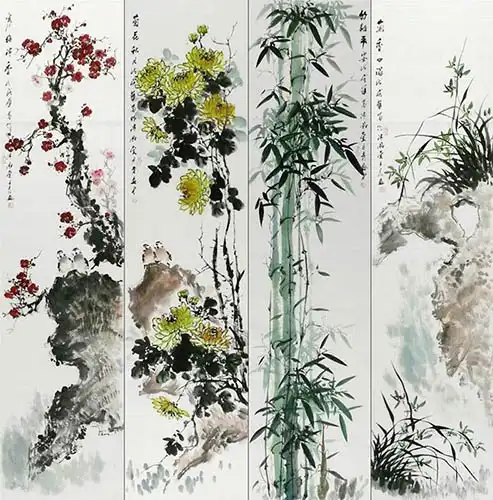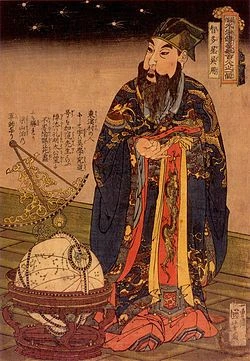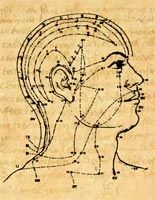Cause
- over-consumption of fat and greasy food
- excessive or consistent use of alcohol
- stress
- chronic active or repressed anger, resentment or frustration
Note: To understand the term "Qi" , thus to get a better grasp of the following disharmony, we encourage our readers to review the short material "What is Qi" in the Vitality chapter.
In traditional Chinese medicine the Liver is the organ that governs the smooth flow of Qi throughout the whole body. To be in a good state of health – physically and emotionally - one needs to have a smooth, uninterrupted flow of Qi in both body and mind. When the Qi flows continuously and in the proper direction the body organs function properly and the overall physical and psychological states are harmonious. If the Qi ceases to flow smoothly one becomes unbalanced on both mental and physical levels. Since the Liver governs the smooth flow of Qi when it stagnates the Liver becomes unbalanced. And vice versa - if the Liver is unbalanced - the Qi will stagnate. In both cases this diagnosis is called "Liver Qi stagnation".
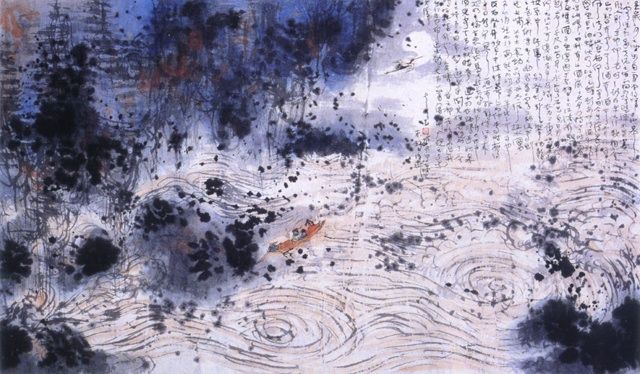
There are three major causes for the Liver Qi to stagnate. One is improper diet. Consumption of too much rich and greasy food and/or alcohol makes the Liver swollen and sluggish, and unable to maintain the smooth flow of Qi throughout the body. Thus the Qi of the Liver becomes stagnated.
Another cause for the Liver Qi to stagnate is stress. Whenever we are under stress we tend to clench our fingers, hunch our shoulders, curl our body, etc. Our muscles are tense and our breathing is shallow. This indicates that the smooth flow of Qi is interrupted.
The third reason for Liver Qi stagnation is chronic active or repressed anger, resentment or frustration.
To learn more about the Liver and it's functions from the perspective of traditional Chinese medicine go to "The Liver in traditional Chinese medicine" in the Physiology chapter.
Symptoms
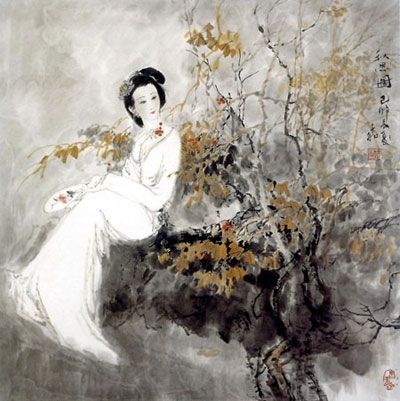
In women:
- PMS
- breast tenderness
- lumps in the breast
- painful and/or irregular menstruation
- excessive menstrual bleeding
- clots in the blood
- mood change
- irritability and/or sadness
- tiredness
- disturbed sleep
General:
- stress
- sighing
- fullness, discomfort and/or pain under the ribs
- sensation of having a lump in the throat
In women stagnated Liver Qi manifests in disharmony of the menstrual cycle. Stagnated Liver Qi weakens the movement of blood (the blood needs Qi to move) preventing the blood from properly reaching the uterus. This results in painful and/or irregular menstruation, excessive bleeding, purple or brown blood (i.e. stagnated blood), clots in the blood, etc. Another typical manifestation of Liver Qi stagnation in women is premenstrual syndrome (PMS). Symptoms include mood change, irritability and/or sadness, tiredness, disturbed sleep, premenstrual tension, breast tenderness, etc. Since the Liver meridian passes by the breasts another common symptom of stagnated Liver Qi is lumps in the breast. (1)
As it flows upward the Liver meridian passes through the diaphragm, the hypochondriac region then ascends to the throat. Based on that Liver Qi stagnation may manifest as fullness, discomfort and/or pain in the hypochondriac region as well as a sensation of having a lump in the throat. Difficulty swallowing (stagnated Qi in the throat), hiccups (stagnated Qi in the diaphragm), and sighing (stagnated Qi in the chest) may be present (1).
When the Liver becomes stagnated and overactive it turns into a bad neighbour and starts assaulting other organs and systems. Its biggest victim is the Spleen. When the Liver "overacts" the Spleen (and the Stomach) symptoms include poor appetite, abdominal distention, epigastric pain, feeling of pulsation in the epigastrium, sour regurgitation, nausea, belching, diarrhea, sometimes vomiting (1)
In TCM blood and Qi are interrelated and interdependent. It is said “Qi is the father of blood and blood is the mother of Qi”. If the Qi is stagnated the blood will stagnate as well. Thus prolonged and untreated stagnation of Liver Qi will eventually lead to stagnation of blood. While the main symptom of stagnated Qi is distention, the main symptom of stagnated blood is pain. The most common symptom of blood stasis is masses in the abdomen with fixed, sharp and stabbing pain. In women there is painful menstruation with dark and clotted blood. Purple nails, lips, and overall complexion additionally confirm that the blood lacks movement. (1)
Because of the above mentioned relationship between Qi and blood a long term stagnation of Liver Qi will lead to cold hands and feet as the blood circulation will not be flowing smoothly.
On emotional level a stagnated Liver manifests in depression, melancholy, irritability, and abrupt mood changes.
Treatment

The main strategy for “unblocking” stagnated Qi is movement. Movement in the form of exercise, yoga, and any Eastern practice or martial art, is essential for promoting the movement of Qi. Oxygen has a great moving and antistagnant quality therefore breathing exercises can be also of major assistance to start the Qi flowing.
Another way to move stagnant Qi is to consume foods with moving quality.
To unlock the rest of this article select "Yes, I want to learn!" below.
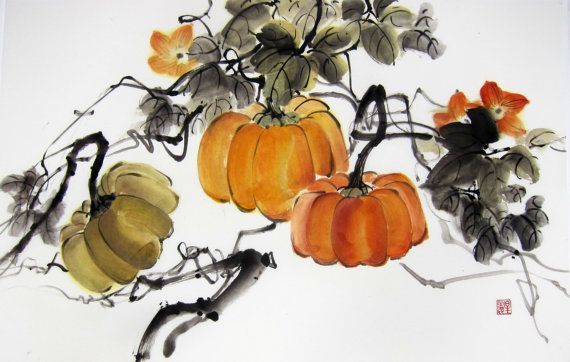
Food therapy is the most economical and non-toxic biochemical approach to health and disease. Food is something we continuously use to sustain our lives. Learning what foods are healing (and what disruptive) for each condition has the potential to convert every meal into a form of therapy.
YS
(1) Maciocia, Giovanni (1989). The Foundations of Chinese Medicine. Nanjing: Harcourt Publishers Limited
(2) Pitchford, Paul (2002). Healing with Whole Foods. Berkeley: North Atlantic Books
Related Articles:
The Liver, the season spring, and spring foods that cleanse the Liver
Herbs that regulate the Qi and benefit Liver Qi stagnation
Herbs that cool the blood and benefit Heat in the Liver
Herbs that tonify the blood and benefit Liver Blood deficiency
Herbs that invigorate the blood and benefit blood stagnation
Please read our Disclaimer

